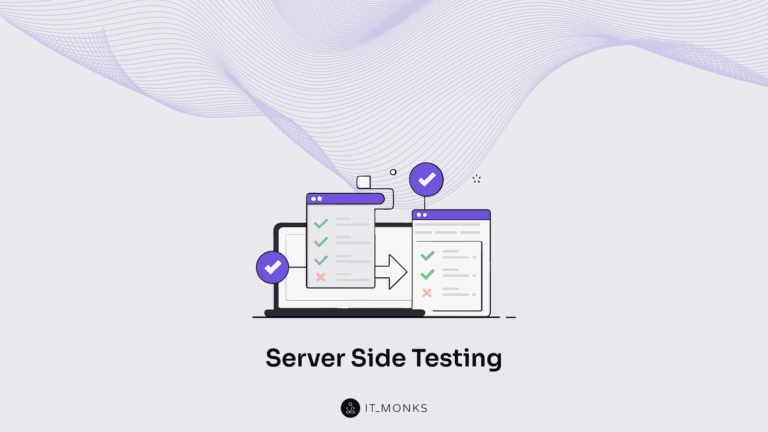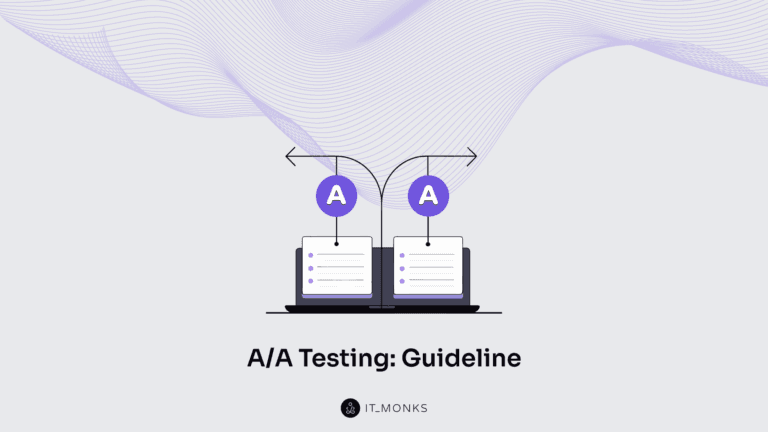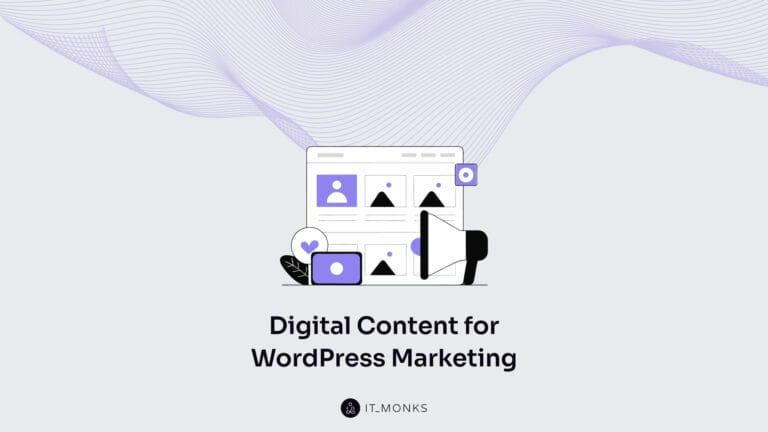11 Best Hostings for Ecommerce
Table of Contents

Choosing the best hosting for an ecommerce website is a critical decision that can significantly impact your business’s success. A high-quality ecommerce host provider ensures your website is fast, secure, and reliable, directly affecting user experience and sales performance. Slow-loading pages, frequent downtime, and security breaches can lead to lost customers and revenue. Therefore, selecting the right hosting service is paramount for ecommerce website owners. Where can you find the best ecommerce hosting? What criteria should you consider during the decision-making? Let’s explore.
Top Hosting Providers for Ecommerce
Out of a wide range of ecommerce hosting websites available on the market, let’s consider our top pick of solutions suitable for hosting an online store. Choosing reliable hosting for ecommerce is easier when you know what features to look for and your budget expectations. We’ve outlined the main pros and cons of the web hosting ecommerce solutions featured in this list. Review them in detail and choose the best hosting for your ecommerce website.
WordPress.com Entrepreneur
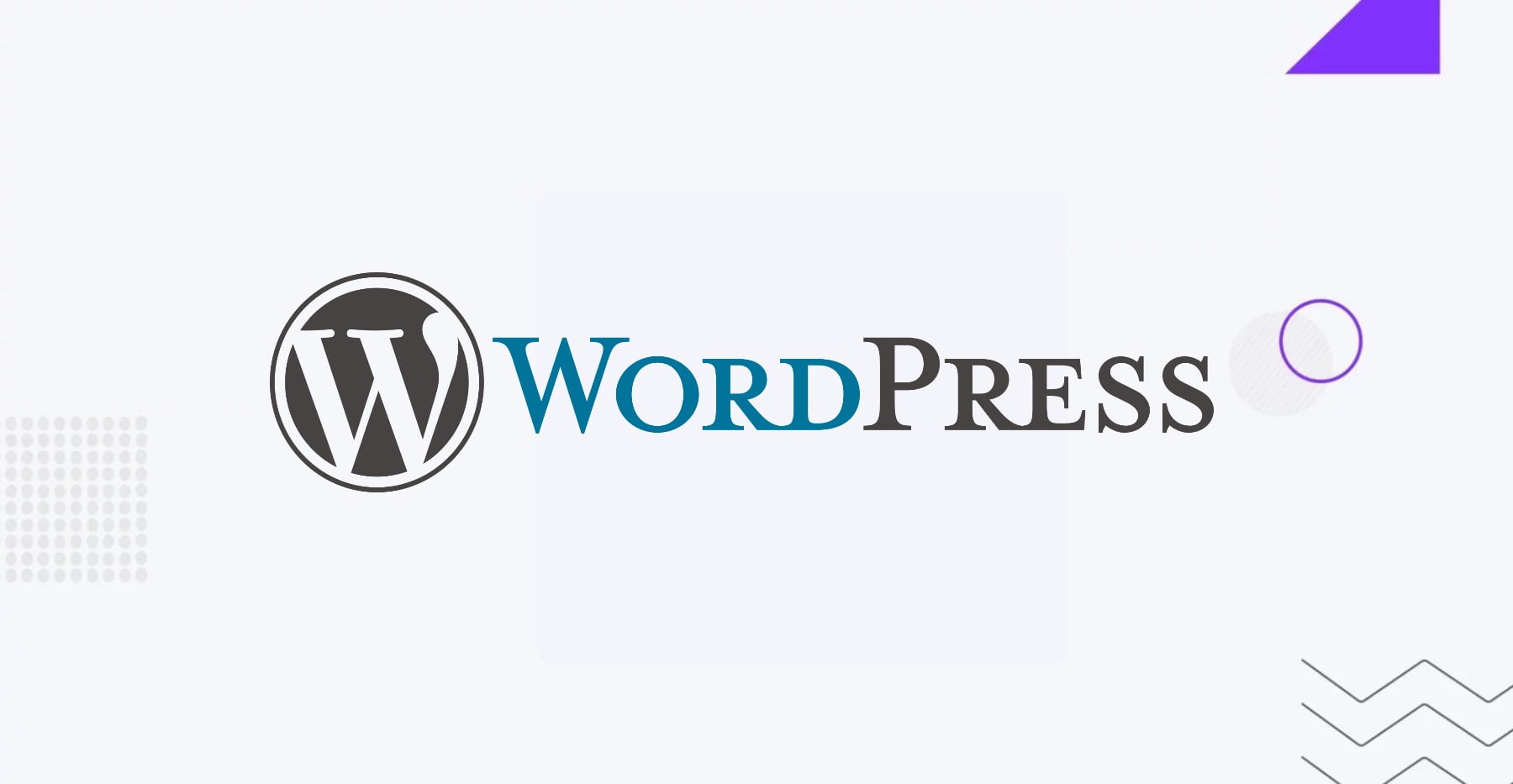
WordPress.com Entrepreneur is a specialized hosting plan designed for ecommerce businesses. Leveraging the powerful and flexible WordPress platform, this service provides a range of features to help entrepreneurs build, manage, and grow their online stores effectively.
Key Features for Ecommerce:
- WooCommerce Integration: WordPress.com Entrepreneur comes with built-in WooCommerce integration, the most popular ecommerce plugin for WordPress. This allows for easy setup of online stores, product listings, and order management.
- Payment Gateways: The plan supports the best payment gateways for WooCommerce, including PayPal, Stripe, and credit card payments, offering flexibility and convenience for your customers.
- Unlimited Products and Storage: You can list unlimited products without worrying about storage limitations, making it suitable for growing businesses.
- Marketing and SEO Tools: Built-in SEO tools help improve your site’s visibility on search engines, driving organic traffic to your online store.
- Analytics and Reporting: Access comprehensive analytics and reporting tools to track sales, monitor customer behavior, and make informed business decisions.
- Security Features: The plan includes a free SSL certificate, ensuring secure data transmission and enhancing customer trust. Regular automated backups protect your data and ensure quick recovery in case of any issues. Continuous malware scanning and security monitoring help protect your site from threats.
- Customer Support: Access to 24/7 customer support via live chat and email, with WordPress experts ready to assist with any issues.
Pros:
- Ease of Use: The WordPress.com Entrepreneur plan is user-friendly, with a straightforward setup process and intuitive interface, making it accessible for users with varying technical expertise.
- Comprehensive Features: A wide range of features specifically designed for ecommerce, including WooCommerce integration, marketing tools, and detailed analytics.
- Scalability: Unlimited products and high-performance storage allow for seamless scalability as your business grows.
- Security: Robust security measures, including SSL certificates, WordPress automatic backups, and malware scanning, ensure the well-protection of your site and customer data.
- Support: 24/7 customer support and a vibrant community provide reliable assistance and resources.
Cons:
- Higher Cost: The Entrepreneur plan is priced higher than basic hosting plans, which may be a consideration for small businesses with limited budgets.
- Limited Customization: While WooCommerce offers extensive customization options, some advanced features and customizations may require additional plugins or development work.
- Dependence on WordPress Ecosystem: The plan relies heavily on the WordPress ecosystem, which may not be suitable for businesses looking for non-WordPress solutions.
Pricing:
The WordPress.com Entrepreneur plan costs $540 annually and is designed for online stores.
WPVIP Enterprise Commerce

WPVIP (WordPress VIP) Enterprise Commerce is a premium hosting solution for large-scale ecommerce businesses. Leveraging the robust capabilities of the WordPress platform, this hosting plan offers enterprise-level performance, security, and support tailored to meet the demands of high-traffic, high-volume online stores.
Key Features for Ecommerce:
- Scalability and Performance: WPVIP is built to handle significant traffic spikes and large volumes of transactions without compromising performance, making it ideal WordPress Enterprise solutions.
- Enterprise-Grade Security: Comprehensive security measures, including regular security audits, real-time threat detection, and automated backups, achieve WordPress ecommerce security from cyber threats.
- WooCommerce Integration: WPVIP offers seamless integration with WooCommerce, enabling powerful ecommerce functionalities and extensive customization options.
- Analytics and Reporting: Access to comprehensive analytics and reporting tools to track sales performance, customer behavior, and key metrics, helping you make informed business decisions.
- Content Management: WordPress VIP offers a highly flexible content management system (CMS) that allows you to create and manage a wide range of content types, from product pages to blog posts and landing pages.
- Customer Support: Access to a team of dedicated support engineers with expertise in WordPress and ecommerce, available 24/7 to assist with any technical issues or queries.
- Custom Development and Integration: WPVIP supports extensive API integrations, allowing you to connect with third-party applications and services, enhancing the functionality of your ecommerce site.
Pros:
- Exceptional Performance: Optimized for high performance and scalability, including techniques to speed up WordPress loading time and seamless user experience even under heavy traffic.
- Robust Security: Comprehensive security measures protect your site and customer data from threats, ensuring a secure shopping environment.
- Advanced WooCommerce Integration: Offers powerful ecommerce functionalities and customization options to support complex business requirements.
- Dedicated Support: Access to expert support and custom development services to address technical challenges and enhance site functionality.
- In-Depth Analytics: Comprehensive reporting and analytics tools provide valuable insights to drive business growth and optimize operations.
Cons:
- High Cost: WPVIP is a premium hosting solution with a higher price point, which may be prohibitive for small businesses or startups.
- Complex Setup: Initial setup and configuration may require significant technical expertise and resources.
- Vendor Lock-In: Dependence on the WPVIP platform and services may limit flexibility and customization options in the long term.
Pricing:
WordPress VIP pricing plans start at $25,000 per year, but the final cost can vary based on several factors:
- The scale and size of the project
- Expected traffic volume to the website
- Customization requirements
- Support and Service Level Agreements (SLAs)
- Security and compliance needs
- Integration with third-party services
- Content management and editorial workflow
Pressable
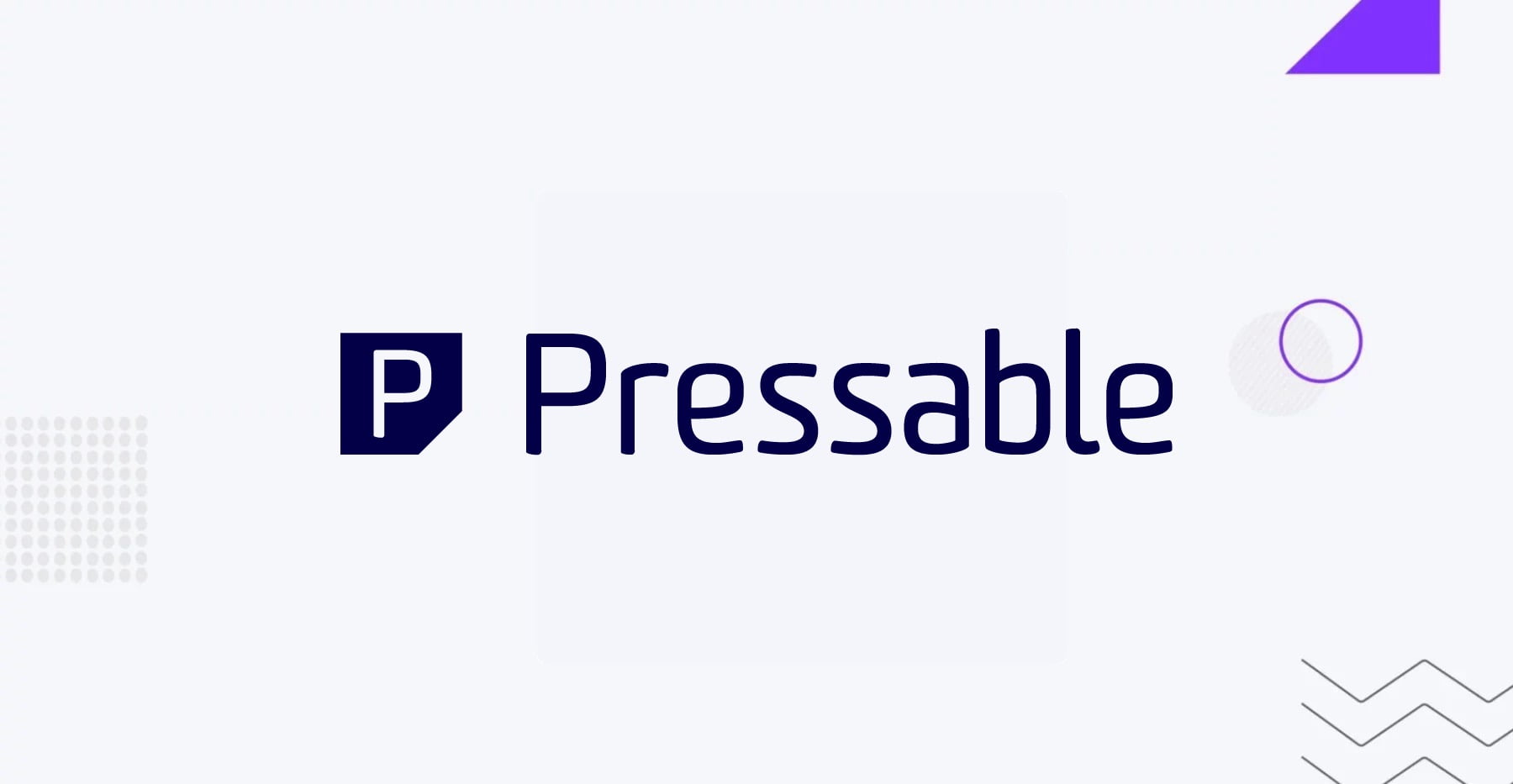
Pressable WooCommerce Hosting is a specialized hosting solution designed to enhance the performance, security, and scalability of WooCommerce-powered ecommerce websites. By leveraging Pressable’s robust infrastructure and WooCommerce’s powerful capabilities, this hosting plan aims to provide a seamless and efficient platform for online stores.
Key Features for Ecommerce:
- Optimized WooCommerce Performance: Pressable utilizes high-performance servers optimized for WooCommerce, ensuring fast load times and smooth operation for your ecommerce site.
- Scalability: Pressable’s auto-scaling technology automatically adjusts resources based on traffic demands, ensuring consistent performance during traffic spikes.
- Security: Includes automated daily backups, malware scanning, and removal, ensuring your site remains secure and data is protected.
- Managed Hosting Services: Pressable handles core WordPress and WooCommerce updates, ensuring your site remains up-to-date with the latest features and security patches.
- Staging Environment: Offers a staging environment where you can test changes and updates before deploying them to your live site, minimizing the risk of disruptions.
- Performance Monitoring: Monitor site performance and traffic in real-time, gaining insights into user behavior and identifying areas for improvement.
Pros:
- Optimized for WooCommerce: Specifically designed to maximize the performance and capabilities of WooCommerce, providing a tailored solution for ecommerce businesses.
- High Performance: Fast servers and CDN integration ensure quick load times and a smooth user experience.
- Scalability: Auto-scaling resources and flexible plans support business growth and handle traffic spikes efficiently.
- Robust Security: Comprehensive security measures, including free SSL certificates, protect your site and customer data.
- Expert Support: 24/7 access to WooCommerce experts ensures reliable assistance and support.
Cons:
- Higher Cost: As a managed hosting solution, Pressable WooCommerce Hosting may be more expensive than basic shared hosting options.
- WooCommerce Focus: The hosting is optimized for WooCommerce, which may not be ideal for businesses using other ecommerce platforms.
- Limited Customization: Managed services may limit some customization options, as certain configurations and updates are handled by Pressable.
Pricing:
Pressable WooCommerce Hosting offers several pricing plans to cater to different business needs and sizes:
- Starter Plan: $25/month
- Pro Plan: $45/month
- Growth Plan: $90/month
- Scale Plan: Custom Pricing
Bluehost
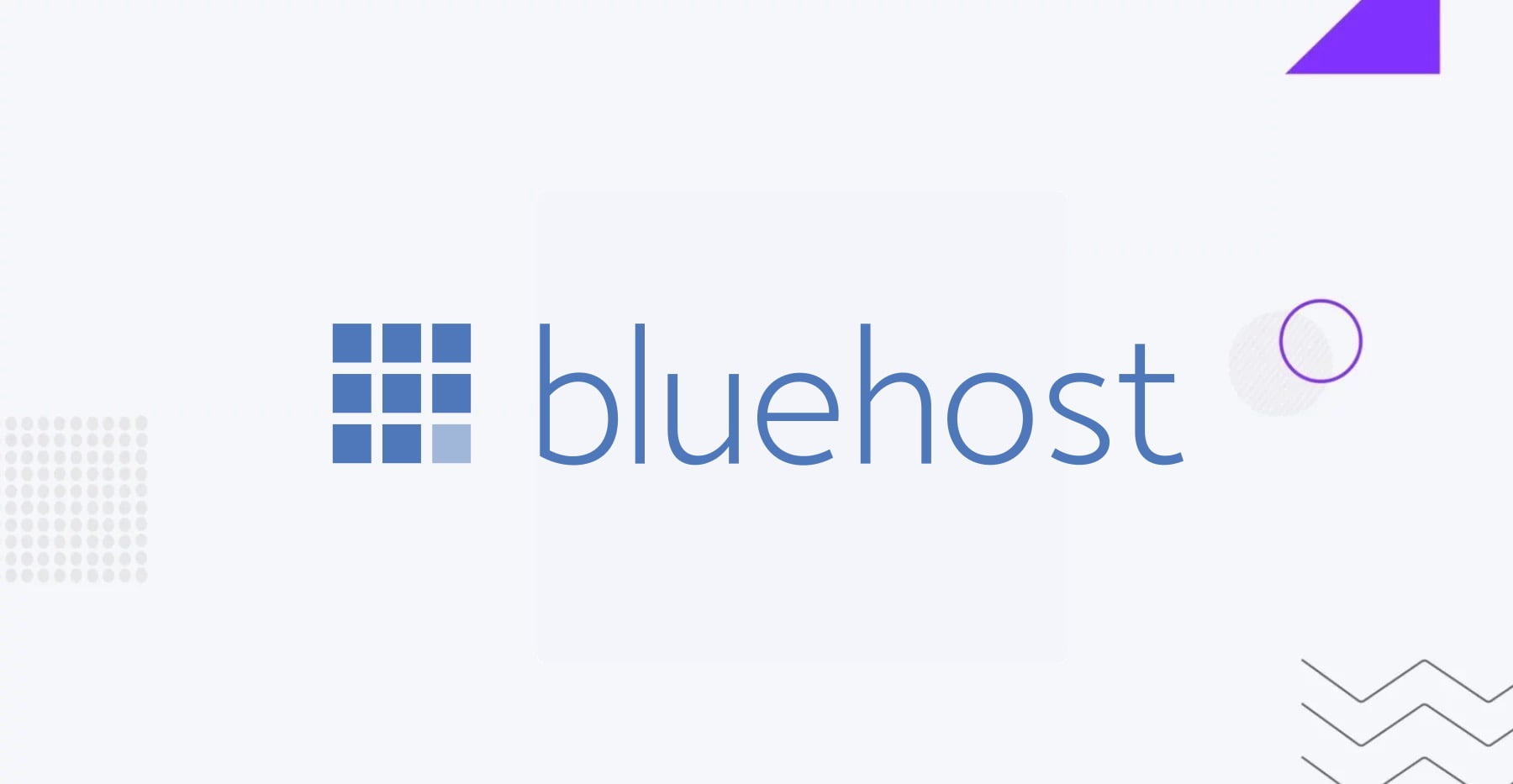
Bluehost is a well-known web hosting provider with a solid reputation for offering reliable and affordable hosting services. It is particularly favored by small to medium-sized ecommerce businesses due to its robust feature set, user-friendly interface, and strong customer support. Here’s a detailed look at what makes Bluehost a top choice for ecommerce website hosting:
Key Features for Ecommerce:
- Free SSL Certificate: Security is paramount for e-commerce websites, and BlueHost provides a free SSL certificate with all its hosting plans. So, if you are wondering, “Is WordPress secure for e-commerce? ” It depends on which hosting provider you choose. This ensures that all data transferred between the user and the server is encrypted, essential for protecting customer information and building trust.
- High-Speed Servers: BlueHost’s servers are optimized for performance, providing fast loading times. This is crucial for ecommerce sites, as studies show that even a one-second delay in page load time can result in a 7% reduction in conversions. Faster sites also rank better on search engines, improving visibility and traffic.
- One-Click WordPress Installation with WooCommerce Integration: BlueHost makes it easy to set up an ecommerce site by offering one-click installation of WordPress and seamless integration with WooCommerce. This combination provides a powerful platform for creating and managing an online store, complete with all the necessary tools for selling products online.
- 24/7 Customer Support: Ecommerce sites need to be operational at all times, and any downtime can result in lost sales. BlueHost offers 24/7 customer support via phone, chat, and email, ensuring that any issues are quickly resolved to keep your site running smoothly.
- Marketing Credits: BlueHost includes marketing credits in its plans, helping you promote your ecommerce website through Google Ads, Bing Ads, and other platforms. This can drive more traffic to your site and increase sales.
- Scalability: As your ecommerce business grows, your hosting needs may change. BlueHost offers scalable solutions that allow you to upgrade your plan and resources easily without experiencing any downtime.
Pros:
- Reliability and Uptime: BlueHost boasts a strong uptime record, ensuring that your ecommerce site remains accessible to customers around the clock. This reliability is critical for maintaining customer trust and maximizing sales.
- User-Friendly Interface: BlueHost’s control panel is intuitive and easy to navigate, even for those without technical expertise. This makes managing your website, setting up email accounts, and installing applications straightforward.
- Affordability: With plans starting at $2.95/month, BlueHost offers excellent value for money, especially for small—to medium-sized e-commerce businesses. The low starting price makes it accessible for startups and budget-conscious entrepreneurs.
- Extensive Resources and Tutorials: BlueHost provides a wealth of resources, including tutorials, guides, and a comprehensive knowledge base. These resources help users make the most of their hosting plan and address any issues independently.
Cons:
- Higher Renewal Rates: BlueHost’s introductory prices are very attractive, but renewal rates can be significantly higher. This can increase the long-term cost of hosting your ecommerce website.
- Limited Advanced Features: For very large-scale ecommerce operations, BlueHost may lack some of the advanced features and customizability offered by higher-end hosting providers. Businesses with complex needs may need to look at more specialized hosting solutions.
- Extra Costs for Add-Ons: Some features, such as site backups and advanced security options, may require additional fees. These costs can add up, especially if you need multiple add-ons.
Pricing:
BlueHost offers several hosting plans that cater to different needs and budgets. Here’s a breakdown of their main plans suitable for ecommerce websites:
- Basic Plan: Starting at $2.95/month
- Plus Plan: Starting at $5.45/month
- Choice Plus Plan: Starting at $5.45/month
- Pro Plan: Starting at $13.95/month
Inmotion Hosting
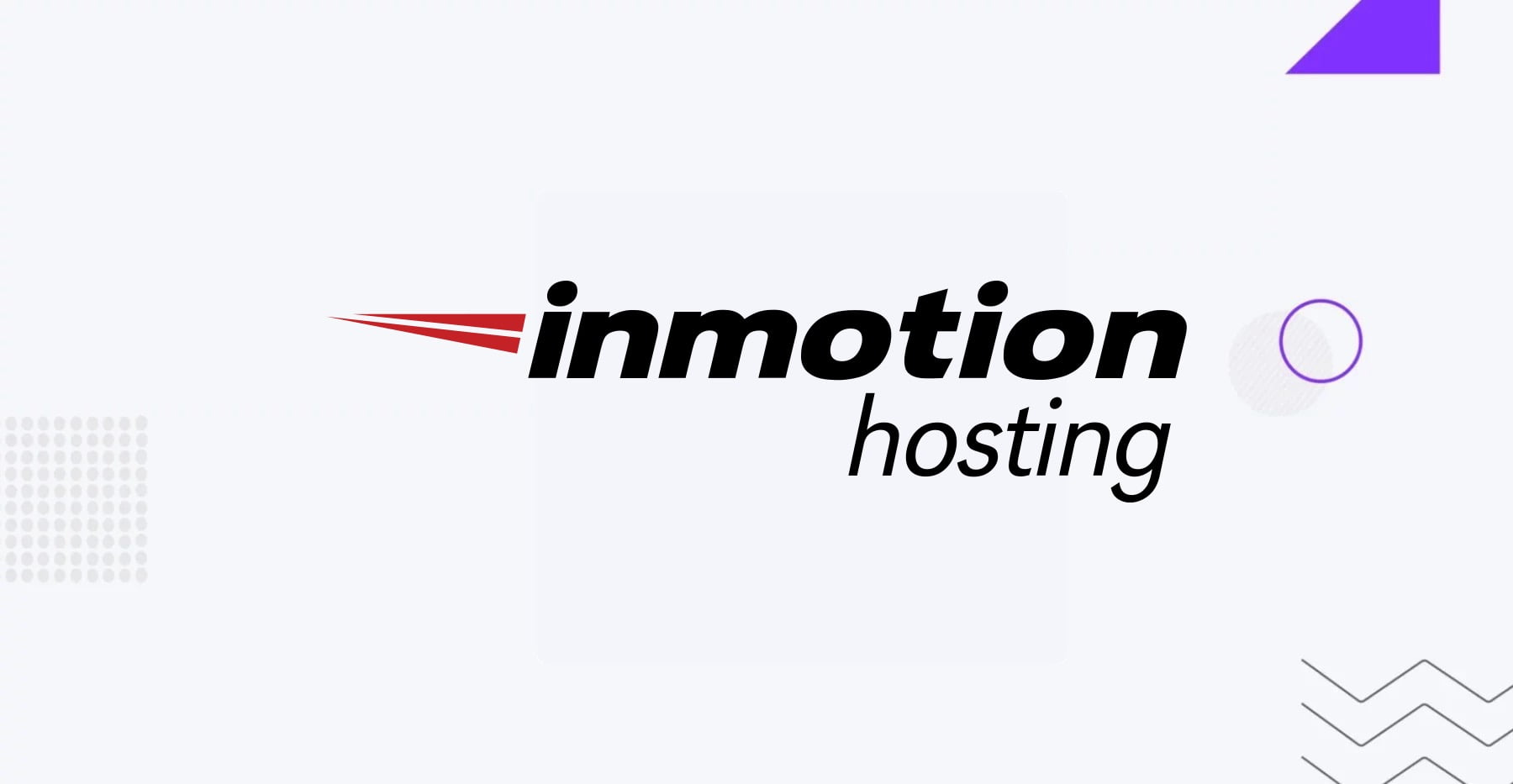
InMotion Hosting is a reputable ecommerce web hosting provider known for its performance, robust features, and excellent customer support. It is particularly well-suited for ecommerce websites due to its focus on speed, security, and scalability. Here’s a detailed examination of what makes InMotion Hosting a top choice for ecommerce website hosting:
Key Features for Ecommerce:
- SSD Storage: InMotion Hosting uses SSD (Solid State Drive) storage for all its plans, significantly enhancing website performance and loading speeds. Fast loading times are crucial for ecommerce websites, as slow pages can lead to high bounce rates and lost sales.
- Free Domain and SSL Certificate: Every InMotion Hosting plan includes a free domain for the first year and a free SSL certificate. The SSL certificate is essential for securing online transactions and protecting customer data, while the free domain helps reduce initial setup costs.
- Optimized for Ecommerce Platforms: InMotion Hosting offers easy integration with popular ecommerce platforms such as WooCommerce, Magento, and PrestaShop. This ensures that you can quickly set up your online store and benefit from the specific features and tools designed for ecommerce.
- Robust Security Features: InMotion Hosting provides comprehensive security features, including free hack protection, automatic backups, DDoS protection, and malware protection. These features are critical for safeguarding your ecommerce website against cyber threats and ensuring the integrity of customer data.
- Scalability: As your ecommerce business grows, you may need additional resources to handle increased traffic and sales. InMotion Hosting offers scalable hosting plans that allow you to upgrade your resources without experiencing downtime or technical issues.
- 24/7 Customer Support: InMotion Hosting prides itself on its exceptional customer support, available 24/7 via phone, chat, and email. This support is crucial for resolving any technical issues promptly, ensuring your ecommerce site remains operational and your customers are satisfied.
Pros:
- Exceptional Performance: InMotion Hosting’s use of SSD storage and advanced caching techniques ensures fast loading times, which can improve user experience and conversion rates.
- Comprehensive Security: With features like free hack protection, DDoS protection, and automatic backups, InMotion Hosting provides a secure environment for ecommerce websites.
- Free Website Migration: If you are switching from another host, InMotion Hosting offers free website migration services (e.g. if you need to migrate data from OpenCart to WooCommerce), ensuring a smooth transition without data loss or downtime.
- Money-Back Guarantee: InMotion Hosting offers a 90-day money-back guarantee, giving you ample time to test their services risk-free.
Cons:
- Higher Initial Costs: InMotion Hosting’s plans can be more expensive compared to some other hosts, which may be a consideration for startups or very small businesses with limited budgets.
- Limited Data Centers: While InMotion Hosting provides excellent performance in the US, it has fewer data centers outside the US, which might impact site performance for international customers.
- Complex Setup for Beginners: The advanced features and options available with InMotion Hosting can be overwhelming for beginners, requiring a bit of a learning curve.
Pricing:
The pricing varies based on the resource allocation (vCPUs, RAM, storage, bandwidth) with the higher-end plans costing more.
- UltraStack 4GB RAM: $17.50/month ($21.00/month regular price)
- UltraStack 6GB RAM: $21.00/month ($25.00/month regular price)
- UltraStack 8GB RAM: $35.00/month ($42.00/month regular price)
- UltraStack 12GB RAM: $46.67/month ($56.00/month regular price)
DreamHost
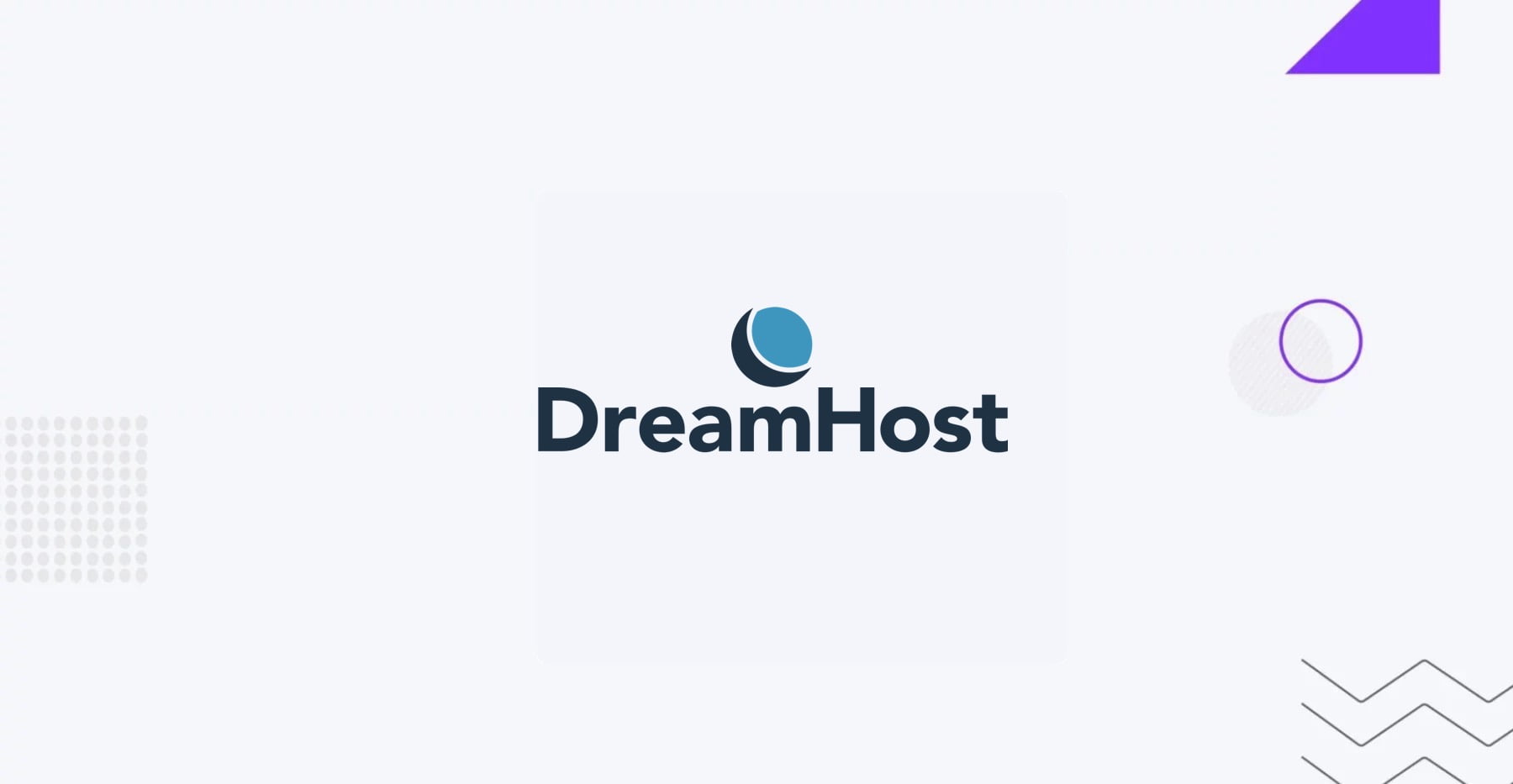
DreamHost is a prominent ecommerce web hosting provider offering reliable, high-performance hosting solutions since 1997. It’s particularly favored for ecommerce websites due to its uptime, unlimited resources, and robust security features. Here’s a detailed analysis of why DreamHost stands out as one of the best hosting providers for ecommerce websites.
Key Features for Ecommerce:
- Unlimited Bandwidth and Storage: DreamHost provides unlimited bandwidth and storage on its plans, allowing your ecommerce website to handle large amounts of traffic and a vast catalog of products without performance issues. This is crucial for ecommerce sites that expect growth and fluctuating traffic.
- Free SSL Certificate and Domain Privacy: Every DreamHost plan includes a free SSL certificate, ensuring secure transactions and protecting customer data. Additionally, DreamHost offers free domain privacy, which helps protect your personal information from being publicly accessible in the WHOIS database.
- One-Click Installs for Ecommerce Platforms: DreamHost supports one-click installs for popular ecommerce platforms like WooCommerce, Magento, and PrestaShop. This makes it easy to set up and launch your online store quickly, with all the necessary tools and features at your disposal.
- Custom-Built Control Panel: DreamHost features a custom-built control panel that simplifies site management. This intuitive interface allows you to manage domains, databases, email accounts, and more without needing advanced technical skills.
- Comprehensive Security: DreamHost takes security seriously, offering features like free daily backups, DDoS protection, and malware scanning and removal. These security measures are essential for protecting your ecommerce site from cyber threats and ensuring the safety of customer data.
- 100% Uptime Guarantee: DreamHost offers a 100% uptime guarantee, ensuring your ecommerce site remains accessible to customers at all times. This reliability is critical for maintaining customer trust and maximizing sales.
Pros:
- Unlimited Resources: DreamHost’s unlimited bandwidth and storage ensure that your e-commerce site can handle growth and high traffic volumes without any issues.
- Transparent Pricing: DreamHost’s pricing is straightforward with no hidden fees, making it easier to manage costs and budget effectively.
- Generous Money-Back Guarantee: DreamHost offers a 97-day money-back guarantee, giving you plenty of time to test their services and ensure they meet your needs.
- Environmentally Friendly: DreamHost is committed to sustainability, operating as a carbon-neutral company. This can be a plus for businesses looking to reduce their environmental footprint.
Cons:
- Limited Phone Support: DreamHost’s phone support is not as comprehensive as some other providers, which may be a drawback for users who prefer direct communication.
- Custom Control Panel: While the custom control panel is user-friendly, it may require some adjustment for users accustomed to cPanel, the more widely used control panel in the hosting industry.
- Higher Initial Cost: DreamHost’s plans can be more expensive initially compared to some budget hosts, though the value provided often justifies the cost.
Pricing:
DreamHost offers a range of hosting plans suitable for ecommerce websites, catering to different needs and budgets:
- Shared Starter Plan: Starts at $2.59/month
- Shared Unlimited Plan: Starts at $3.95/month
- DreamPress Plan: Starts at $16.95/month
- VPS Hosting Plan: Starts at $13.75/month
- Dedicated Hosting Plan: Starts at $149/month
HostGator

HostGator is a well-established web hosting provider known for its reliability, user-friendly features, and affordability. It has become a popular choice for ecommerce websites due to its uptime, scalable plans, and comprehensive support. Here’s an in-depth look at why HostGator is considered one of the best hosting providers for ecommerce websites.
Key Features for Ecommerce:
- Free SSL Certificate: HostGator includes a free SSL certificate with all its hosting plans, ensuring secure transactions and protecting sensitive customer data. This is crucial for building customer trust and complying with payment security standards.
- One-Click Installations: HostGator offers easy one-click installations for popular ecommerce platforms like WooCommerce, Magento, and PrestaShop. This simplifies setting up an online store, allowing you to focus on growing your business rather than dealing with technical details.
- 99.9% Uptime Guarantee: HostGator provides a 99.9% uptime guarantee, ensuring your ecommerce website remains accessible to customers around the clock. This reliability is essential for maintaining customer trust and maximizing sales opportunities.
- Scalable Solutions: HostGator offers a range of hosting plans, including shared, VPS, and dedicated hosting, allowing your ecommerce site to grow as your business expands. This scalability ensures your site can handle increased traffic and sales without compromising performance.
- Unmetered Bandwidth and Storage: HostGator offers unmetered bandwidth and storage on most plans, allowing your e-commerce site to handle large volumes of traffic and product listings without any restrictions. This is ideal for businesses expecting significant growth.
- 24/7 Customer Support: HostGator offers 24/7 customer support via phone, live chat, and email. Their support team is knowledgeable and responsive, helping you resolve any issues quickly to keep your ecommerce site running smoothly.
Pros:
- Affordability: HostGator’s hosting plans are competitively priced, making it an attractive option for startups and small businesses looking for cost-effective ecommerce hosting solutions.
- User-Friendly Interface: HostGator’s control panel is intuitive and easy to navigate, even for beginners. This simplifies the process of managing your website, setting up email accounts, and installing applications.
- Marketing Credits: HostGator includes marketing credits with its plans, allowing you to promote your ecommerce website through Google Ads, Bing Ads, and other platforms. This can help drive more traffic to your site and increase sales.
- 45-Day Money-Back Guarantee: HostGator offers a 45-day money-back guarantee, providing you with a risk-free opportunity to test their services and ensure they meet your needs.
Cons:
- Upselling of Additional Services: HostGator tends to promote additional services and add-ons during the checkout process, which can be overwhelming and lead to higher costs if not carefully managed.
- Average Speed Performance: While HostGator provides reliable uptime, its speed performance is average compared to some higher-end hosting providers. This might impact the loading times of heavily trafficked ecommerce sites.
- Higher Renewal Rates: Similar to many hosting providers, HostGator’s renewal rates are higher than the initial signup prices, which can increase the long-term cost of hosting your ecommerce website.
Pricing:
HostGator offers various hosting plans to cater to different needs and budgets. Here’s an overview of their main plans suitable for ecommerce websites:
- Hatchling Plan: Starts at $2.75/month
- Baby Plan: Starts at $3.50/month
- Business Plan: Starts at $5.25/month
- VPS Hosting Plans: Start at $19.95/month
- Dedicated Hosting Plans: Start at $89.98/month
SiteGround
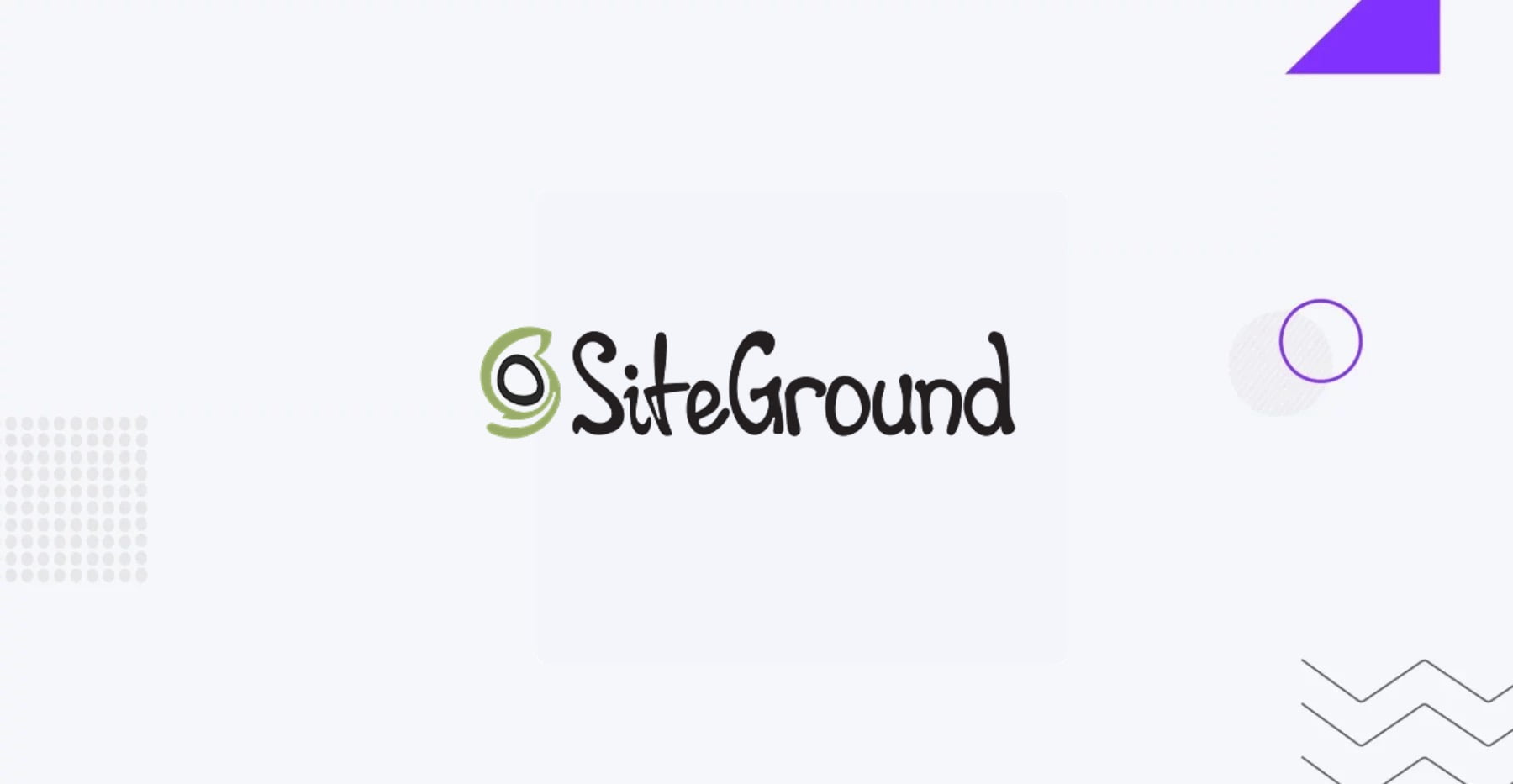
SiteGround is a highly regarded web hosting provider known for its excellent performance, top-notch security, and exceptional customer support. It has earned a solid reputation among ecommerce businesses for its reliable hosting solutions and advanced features. Here’s a detailed look at why SiteGround is a standout choice for ecommerce website hosting.
Key Features for Ecommerce:
- Managed WooCommerce Hosting: SiteGround offers specialized WooCommerce hosting optimized for speed and security. This includes automatic updates, enhanced caching, and tools designed specifically to streamline and manage WooCommerce stores.
- Top-Tier Security: Security is a critical concern for ecommerce websites, and SiteGround delivers features such as a free SSL certificate, daily backups, AI anti-bot system, and proactive server monitoring. These measures protect against data breaches and ensure safe transactions for customers.
- Excellent Performance: SiteGround uses Google Cloud infrastructure to deliver fast loading times and high availability. The platform includes SSD storage, advanced caching (SuperCacher), and a content delivery network (CDN) to ensure optimal site performance, which is crucial for retaining customers and boosting conversion rates.
- Scalability: SiteGround offers scalable hosting solutions, allowing ecommerce businesses to upgrade their resources as they grow. This ensures your website can handle increased traffic and sales without compromising performance.
- Free Daily Backups: SiteGround provides free daily backups and easy restoration options. This feature is essential for ecommerce sites to ensure that data can be recovered quickly in the event of a failure or cyber-attack.
- 24/7 Customer Support: SiteGround’s customer support is available 24/7 via phone, live chat, and email. The support team is highly knowledgeable and responsive, helping you resolve issues promptly to maintain uninterrupted service.
Pros:
- Reliable Uptime: SiteGround offers a 99.99% uptime guarantee, ensuring that your ecommerce site remains online and accessible to customers at all times. This reliability is essential for maintaining customer trust and maximizing sales opportunities.
- High-Level Security: With features like free SSL certificates, daily backups, and proactive monitoring, SiteGround ensures your ecommerce site is well-protected against cyber threats.
- Fast Loading Times: SiteGround’s use of Google Cloud infrastructure, SSD storage, and advanced caching ensures that your ecommerce site loads quickly, improving user experience and reducing bounce rates.
- User-Friendly Interface: The SiteGround control panel is intuitive and easy to use, even for those without technical expertise. This simplifies site management and makes it easier to implement changes and updates.
Cons:
- Higher Cost: SiteGround’s plans are priced higher than some other hosting providers, which may be a consideration for startups or small businesses with tight budgets.
- Limited Storage: While the performance is excellent, SiteGround’s entry-level plans offer limited storage compared to some competitors. This may require upgrades as your site grows and your storage needs increase.
- No Free Domain: Unlike other hosting providers, SiteGround does not include a free domain with its hosting plans, which adds a small additional cost for new site owners.
Pricing:
SiteGround offers a range of hosting plans tailored to different needs and budgets. Here’s an overview of their main plans suitable for ecommerce websites:
- StartUp: $2.99/month for 24 months, then $14.99/month
- GrowBig: $4.99/month for 12 months, then $29.99/month
- GoGeek: $6.99/month for 12 months, then $44.99/month
IONOS
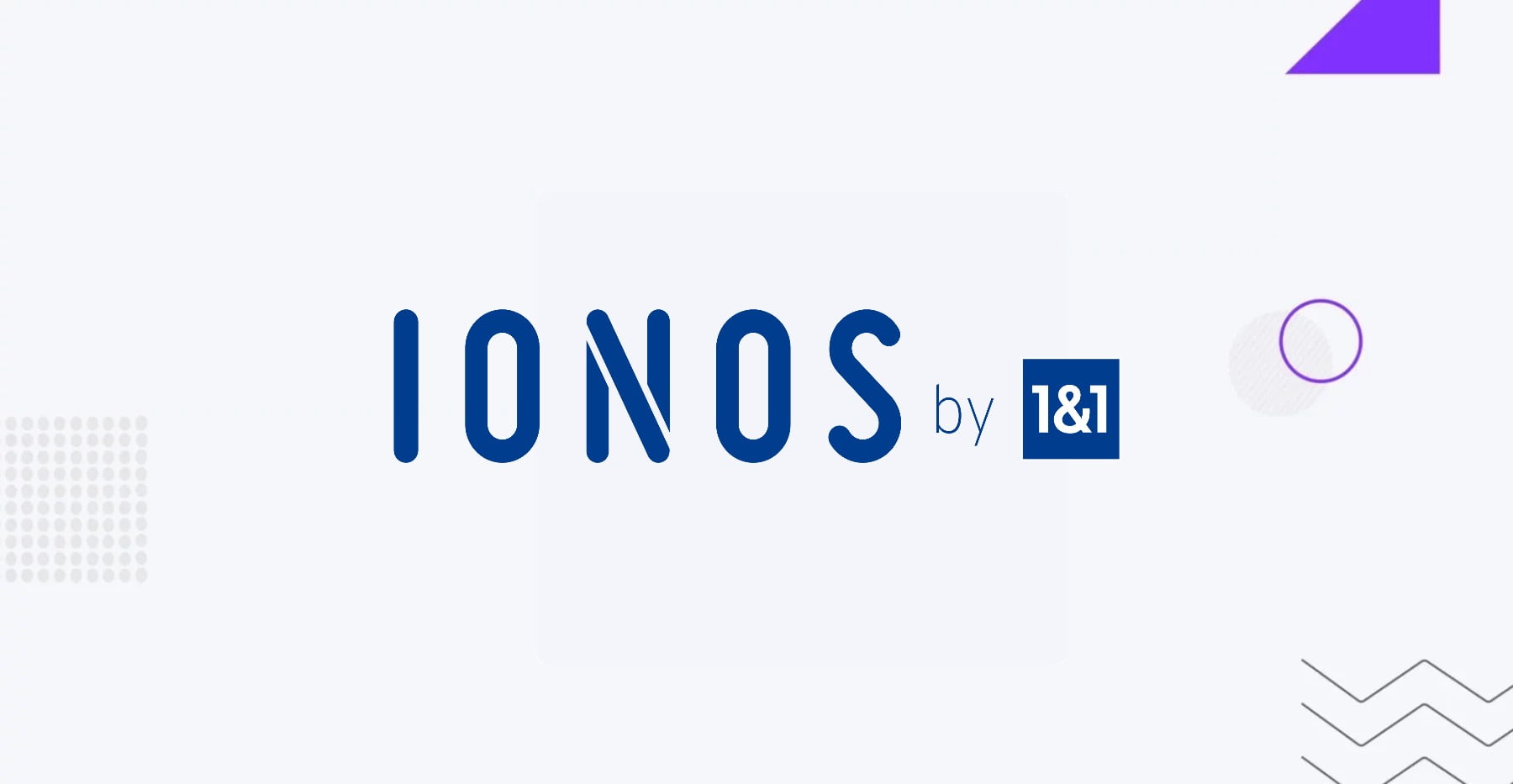
IONOS, formerly known as 1&1 IONOS, is a well-established web hosting provider known for its comprehensive range of hosting solutions, robust performance, and strong security features. It is particularly well-suited for ecommerce websites, offering tailored plans that meet the needs of online businesses. Here’s an in-depth look at why IONOS stands out as one of the best hosting providers for ecommerce websites.
Key Features for Ecommerce:
- Free Domain and SSL Certificate: IONOS provides a free domain and SSL certificate with all its hosting plans, ensuring that your ecommerce site is secure and easy to access. The SSL certificate is essential for protecting customer data and securing online transactions.
- Managed Ecommerce Host: IONOS offers managed hosting solutions that are optimized for popular ecommerce platforms like WooCommerce, Magento, and PrestaShop. These managed plans include automatic updates, enhanced security, and performance optimizations, making it easier to manage your online store.
- High Performance: IONOS uses state-of-the-art data centers with SSD storage, ensuring fast loading times and reliable performance. This is crucial for ecommerce websites, as slow loading times can lead to higher bounce rates and lost sales.
- Scalability: IONOS offers scalable hosting plans that can grow with your business. Whether you start with a shared hosting plan or need to upgrade to VPS or dedicated hosting, IONOS provides seamless scalability to handle increased traffic and sales.
- Comprehensive Security: IONOS includes robust security features such as DDoS protection, malware scanning, and automatic backups. These features are critical for protecting your ecommerce site from cyber threats and ensuring the safety of customer data.
- 24/7 Customer Support: IONOS offers 24/7 customer support via phone, live chat, and email. Their support team is knowledgeable and responsive, providing assistance whenever you need it to keep your ecommerce site running smoothly.
Pros:
- Affordable Pricing: IONOS offers competitive pricing for its hosting plans, making it an attractive option for startups and small businesses looking for cost-effective ecommerce hosting solutions.
- Free Domain and SSL: The inclusion of a free domain and SSL certificate with all plans reduces initial setup costs and ensures your ecommerce site is secure.
- User-Friendly Interface: IONOS provides an intuitive control panel that makes it easy to manage your website, install applications, and monitor performance.
- High Uptime Guarantee: IONOS guarantees 99.9% uptime, ensuring that your ecommerce site remains accessible to customers at all times, which is essential for maximizing sales and maintaining customer trust.
Cons:
- Limited Features on Basic Plans: Some entry-level plans may lack advanced features included in higher-tier plans, which could be a limitation for growing businesses.
- Complex Setup for Beginners: While the interface is user-friendly, the initial setup and configuration may be complex for beginners unfamiliar with web hosting.
- Renewal Rates: Like many hosting providers, IONOS’s renewal rates are higher than the initial signup prices, which could increase the long-term cost of hosting your e-commerce website.
Pricing:
IONOS offers various hosting plans suitable for ecommerce websites, catering to different needs and budgets. Here’s an overview of their main plans:
- Shared Hosting: starting at $5.00/month for the first year, then $12.00/month
- WordPress Hosting: starting at $5.00/month for the first year, then $12.00/month
- VPS Hosting: starting at $5.00/month for the first year, then $15.00/month
- Dedicated Server: starting at $99.00/month for the first year, then $149.00/month
Hostinger

Hostinger is known for offering affordable, high-performance web hosting solutions, making it a popular choice for ecommerce businesses. It combines cost-effectiveness with robust features, ensuring that online stores can operate smoothly and efficiently. Here’s an in-depth look at why Hostinger is considered one of the best hosting providers for ecommerce websites.
Key Features for Ecommerce:
- Affordable Pricing: Hostinger is renowned for its budget-friendly plans without compromising on essential features. This makes it an excellent choice for small and medium-sized ecommerce businesses looking to minimize costs while maximizing functionality.
- Free SSL Certificate: Every Hostinger plan comes with a free SSL certificate, ensuring secure transactions and protecting customer data. This is crucial for building trust with your customers and complying with security standards.
- Optimized for Speed: Hostinger uses LiteSpeed web servers, which are known for their superior performance and speed. Fast loading times are critical for ecommerce websites to reduce bounce rates and increase conversions.
- User-Friendly Control Panel: Hostinger’s custom hPanel is intuitive and easy to use, even for beginners. It simplifies website management, making it easy to handle tasks such as setting up email accounts, managing domains, and installing ecommerce platforms.
- Scalability: Hostinger offers a range of hosting plans, including shared, VPS, and cloud hosting, allowing your ecommerce site to grow as your business expands. This scalability ensures that your site can handle increased traffic and sales without performance issues.
- 24/7 Customer Support: Hostinger provides 24/7 customer support via live chat and email. Their support team is responsive and knowledgeable, helping you resolve any issues quickly to keep your ecommerce site running smoothly.
Pros:
- Competitive Pricing: Hostinger’s plans are among the most affordable in the industry, making it an attractive option for budget-conscious ecommerce businesses.
- High Performance: With LiteSpeed web servers and optimized performance, Hostinger ensures that ecommerce websites load quickly, enhancing user experience and boosting sales.
- Free SSL and Domain: The inclusion of a free SSL certificate and domain (with some plans) reduces initial setup costs and enhances site security.
- Easy to Use: The custom hPanel is designed for ease of use, making it accessible to users with varying levels of technical expertise.
- Global Data Centers: Hostinger has data centers around the world, ensuring fast load times and reliability regardless of your target market.
Cons:
- Limited Features on Basic Plans: Some of the lower-tier plans may lack advanced features and resources that are included in higher-priced plans, which could be limiting for larger ecommerce sites.
- No Phone Support: Hostinger does not offer phone support, which might be a drawback for users who prefer direct, verbal communication for troubleshooting.
- Additional Costs for Backups: Automated daily backups are not included in all plans and may require an additional fee, which could increase the overall cost.
Pricing:
Hostinger offers a variety of hosting plans tailored to different needs and budgets. Here’s an overview of their main plans suitable for ecommerce websites:
- Single Shared Hosting: Starts at $1.99/month
- Premium Shared Hosting: Starts at $2.99/month
- Business Shared Hosting: Starts at $3.99/month
- VPS Hosting Plans: Start at $3.99/month
- Cloud Hosting Plans: Start at $9.99/month
A2 Hosting
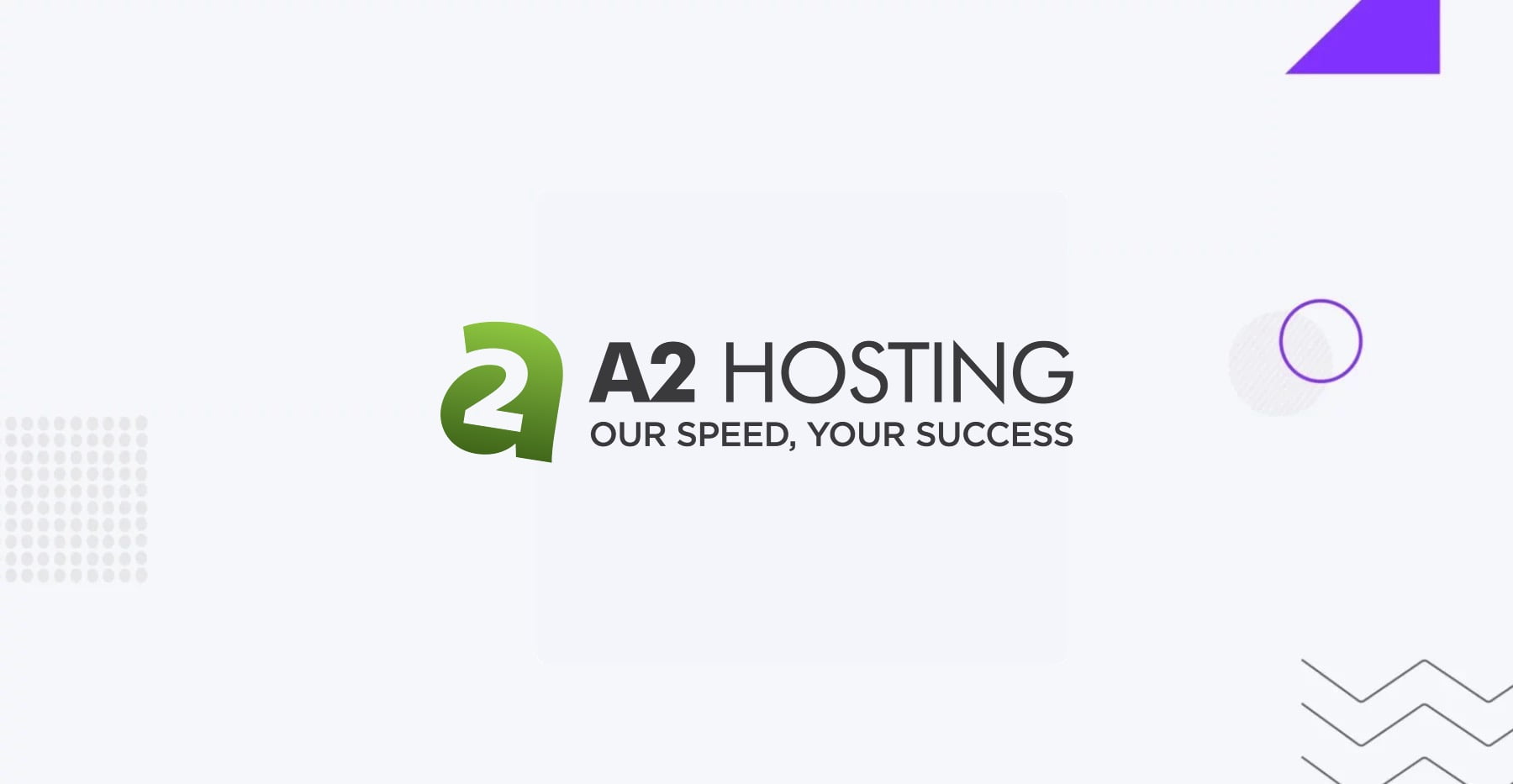
A2 Hosting is well-known for its speed-optimized hosting solutions, making it an excellent choice for ecommerce websites. Its focus on performance, security, and customer support makes it one of the best web hosts for ecommerce. Here’s an in-depth look at why A2 Hosting is considered one of the best ecommerce hosting providers.
Key Features for Ecommerce:
- Turbo Servers: A2 Hosting’s Turbo Servers provide up to 20 times faster page loads than standard hosting. This is crucial for ecommerce websites, as faster loading times can lead to higher conversion rates and improved customer satisfaction.
- Free SSL Certificate: Every A2 Hosting plan has a free SSL certificate, ensuring your ecommerce site is secure. This is essential for protecting customer data and securing online transactions.
- Optimized Ecommerce Platforms: A2 Hosting offers optimized hosting for popular ecommerce platforms such as WooCommerce, Magento, and PrestaShop. This ensures that your ecommerce site runs smoothly and efficiently with enhanced performance and security.
- Free Site Migrations: A2 Hosting offers free site migration services, making it easy to transfer your existing ecommerce site to their servers without any downtime or hassle.
- Scalability: A2 Hosting provides a range of hosting plans, including shared, VPS, and dedicated hosting, allowing your ecommerce site to scale as your business grows. This flexibility ensures your site can handle increased traffic and sales without performance issues.
- 24/7/365 Guru Crew Support: A2 Hosting’s support team is available 24/7/365 via phone, live chat, and email. Their highly knowledgeable support staff can assist with any issues, ensuring that your ecommerce site remains operational and efficient.
Pros:
- Exceptional Speed: A2 Hosting’s Turbo Servers and other performance-enhancing technologies ensure that your ecommerce site loads quickly, improving user experience and reducing bounce rates.
- Reliable Uptime: A2 Hosting guarantees a 99.9% uptime, ensuring that your ecommerce site remains accessible to customers at all times.
- Free SSL and Site Migrations: The inclusion of a free SSL certificate and free site migration services reduces initial setup costs and enhances site security.
- Optimized for Ecommerce: A2 Hosting’s plans are optimized for popular ecommerce platforms, ensuring smooth operation and enhanced performance.
- Money-Back Guarantee: A2 Hosting offers an anytime money-back guarantee, providing peace of mind and flexibility if you’re not satisfied with their services.
Cons:
- Higher Pricing for Turbo Plans: The Turbo plans, which offer the best performance, are priced higher than standard plans. This could be a consideration for businesses with tight budgets.
- Limited Basic Plan Features: Some features, such as automated backups and advanced security options, may not be included in the basic plans and might require additional fees.
- Complex Setup for Beginners: While A2 Hosting offers many advanced features, the initial setup and configuration can be complex for beginners without technical expertise.
Pricing:
A2 Hosting offers a variety of plans tailored to different needs and budgets. Here’s an overview of their main plans suitable for ecommerce websites:
- Startup Plan: Starts at $2.99/month
- Drive Plan: Starts at $4.99/month
- Turbo Boost Plan: Starts at $6.99/month
- Turbo Max Plan: Starts at $12.99/month
- VPS Hosting Plans: Start at $4.99/month
- Dedicated Hosting Plans: Start at $99.59/month
Types of hostings
Choosing the right type of hosting is crucial for the performance and scalability of an ecommerce website. Here’s an overview of the different types of online shop hostings available:
Shared Hosting
Shared hosting involves multiple websites sharing resources on a single server. Each website has its own partition or space on the server, sharing CPU, RAM, and other resources with other hosted ecommerce websites on the same server.
Pros for Ecommerce Websites:
- Cost-Effective: Shared hosting plans are typically the most affordable option, making them ideal for small ecommerce businesses with limited budgets.
- Ease of Use: Hosting providers manage server maintenance, security, and technical support, allowing business owners to focus on managing their ecommerce stores.
- Quick Setup: Shared hosting plans often come with user-friendly control panels that simplify website management and setup.
Cons for Ecommerce Websites:
- Performance Limitations: Since resources are shared among multiple websites, performance can be affected by traffic spikes and resource usage by other sites.
- Security Concerns: Security risks are higher as vulnerabilities in one website can potentially impact others on the same server.
- Scalability Challenges: Limited scalability options compared to other hosting types, which may restrict growth for rapidly expanding ecommerce sites.
VPS Hosting (Virtual Private Server)
VPS hosting utilizes virtualization technology to partition a physical server into multiple virtual servers, each operating independently with dedicated resources (CPU, RAM, storage). This provides more control and isolation compared to shared hosting.
Pros for Ecommerce Websites:
- Improved Performance: Dedicated resources ensure consistent performance even during traffic spikes, making VPS hosting suitable for growing ecommerce sites.
- Enhanced Security: Virtual servers offer greater isolation, reducing security risks associated with shared hosting environments.
- Scalability: Scalable resources allow businesses to easily upgrade or downgrade resources as needed to accommodate growth or seasonal fluctuations.
Cons for Ecommerce Websites:
- Higher Cost: VPS hosting is more expensive than shared hosting due to dedicated resources and increased control.
- Technical Expertise Required: Managing a VPS requires some technical knowledge, including server administration and software updates.
- Limited Server Management: While more control than shared hosting, VPS hosting still may require more hands-on management compared to managed solutions.
Dedicated Hosting
Dedicated hosting provides an entire physical server dedicated to a single customer. This offers the highest level of performance, control, and security, ideal for large ecommerce websites with high traffic and resource-intensive applications.
Pros for Ecommerce Websites:
- Maximum Performance: Dedicated resources ensure optimal performance and reliability, with no resource contention from other websites.
- Full Control: Complete control over server configurations, software installations, and security settings.
- High Security: Enhanced security measures and isolation from other servers reduce vulnerabilities and risks.
Cons for Ecommerce Websites:
- High Cost: Dedicated hosting is the most expensive option due to exclusive use of physical hardware and dedicated resources.
- Technical Expertise Required: Requires advanced technical knowledge or a dedicated server management service to handle server administration tasks.
- Less Flexible: Less flexible than cloud solutions in terms of scaling resources up or down quickly in response to traffic fluctuations.
Cloud Hosting
Cloud hosting utilizes multiple interconnected servers (cloud) to distribute resources needed for maintaining a website’s performance and reliability. This provides flexibility, scalability, and redundancy.
Pros for Ecommerce Websites:
- Scalability: Easily scale resources (CPU, RAM, storage) up or down based on demand, making it suitable for ecommerce sites with unpredictable traffic patterns.
- Reliability: Redundant servers ensure high uptime and availability, minimizing downtime and ensuring business continuity.
- Pay-Per-Use: Pay only for the resources you use, making cloud hosting cost-effective for small to large ecommerce businesses.
Cons for Ecommerce Websites:
- Cost Variability: Costs can fluctuate based on resource usage, potentially resulting in higher bills during traffic spikes.
- Complexity: Managing cloud environments may require technical expertise to optimize performance, security, and scalability.
- Potential Security Concerns: While cloud providers implement robust security measures, shared infrastructure may pose security risks if not properly configured.
Managed Hosting
Managed hosting involves a hosting provider managing server infrastructure, maintenance tasks, security updates, and technical support on behalf of the customer. This allows businesses to focus on core operations without worrying about server management.
Pros for Ecommerce Websites:
- Expert Support: Access to 24/7 technical support from experienced professionals, ensuring prompt resolution of issues and optimal performance.
- Time-Saving: Hosting provider handles server setup, maintenance, updates, and security, freeing up time for business owners to focus on growth.
- Enhanced Security: Managed hosting services often include advanced security measures, regular backups, and proactive monitoring to protect ecommerce data.
Cons for Ecommerce Websites:
- Cost: Managed hosting plans are typically more expensive than unmanaged options due to added support and management services.
- Less Control: Limited control over server configurations and software installations compared to unmanaged hosting solutions.
- Dependency on Provider: Relies on hosting provider for server management and updates, which may impact flexibility and customization options.
Choosing the right hosting type for an ecommerce website depends on factors such as budget, technical expertise, scalability needs, and security requirements. Each hosting type offers distinct advantages and considerations that should align with the specific needs and goals of your ecommerce business.
Key Features to Look For
Selecting the right hosting provider for your ecommerce website involves considering several key features that directly impact performance, security, scalability, reliability, support, and initial setup costs.
Performance and Speed
Fast loading times are crucial for ecommerce websites to enhance user experience, reduce bounce rates, and increase conversions. Studies show that even a one-second delay in page load times can decrease customer satisfaction and lower sales. Therefore, choosing a hosting provider that offers high-speed servers, optimized caching mechanisms, and content delivery networks (CDNs) can significantly improve site performance.
Benchmarks and Metrics to Consider:
- Page Load Times: Aim for load times under 3 seconds, ideally closer to 1-2 seconds, to keep visitors engaged.
- Server Response Time: Ensure the server responds quickly to requests, minimizing waiting times for users.
- Uptime Percentage: Look for hosting providers that guarantee at least 99.9% uptime to ensure your site is accessible to customers at all times.
- Performance Benchmarks: Compare hosting providers using tools like Google PageSpeed Insights, GTmetrix, or Pingdom to evaluate speed and performance metrics.
Scalability
Scalability refers to a hosting provider’s capability to accommodate increases in website traffic and resource demands as your ecommerce business grows. Scalable hosting solutions allow you to easily upgrade resources such as CPU, RAM, and storage without downtime or performance degradation.
Security
Security is paramount for ecommerce websites that handle sensitive customer information and payment transactions.
- SSL Certificates: Secure Socket Layer (SSL) certificates encrypt data exchanged between users and your website, ensuring secure transmission of sensitive information like credit card details.
- Data Encryption: Implement strong encryption protocols (e.g., AES-256) to protect stored data and customer records from unauthorized access.
- Firewall and DDoS Protection: Robust firewalls and Distributed Denial of Service (DDoS) protection mitigate malicious attacks and ensure uninterrupted availability of your ecommerce site.
Reliability and Uptime
Uptime guarantees indicate the percentage of time your website is expected to be operational and accessible to visitors. A hosting provider offering 99.9% uptime ensures minimal downtime, crucial for maintaining customer trust and preventing revenue loss.
Support and Customer Service
Responsive and knowledgeable customer support is essential for resolving technical issues promptly and minimizing disruptions to your ecommerce operations. Look for hosting providers that offer 24/7 support via multiple channels (e.g., live chat, phone, email) to address concerns quickly.
Initial Setup Costs
Setting up an ecommerce website involves initial setup costs that vary based on the type of hosting chosen and the features included in the plan.
Overview of Potential Setup Costs for Different Types of Hostings:
- Shared Hosting is typically the most affordable option, with initial costs around $2-$5 per month. Additional costs may apply for domain registration and SSL certificates.
- VPS Hosting: Offers more resources and scalability than shared hosting, with initial costs around $20-$80 per month, depending on the plan and provider.
- Dedicated Hosting: Provides exclusive use of a physical server, with costs starting at $100-$300 per month. Setup fees and optional add-ons may increase initial costs.
- Cloud Hosting: Offers scalability and pay-as-you-go pricing, with initial costs ranging from $5-$100 per month depending on resource usage. Additional fees may apply for data transfer and storage.
- Managed Hosting combines hosting services with ongoing management and support. Initial costs start at $30-$150 per month, and higher-tier plans with more comprehensive services may have higher setup costs.
Monthly or Annual Costs and What They Typically Include:
- Basic Hosting Plans: Include essential features such as server space, bandwidth, and basic support.
- Premium Plans: Offer additional resources, enhanced security features, and higher monthly or annual fee priority support.
- Add-Ons and Extras: Optional add-ons such as SSL certificates, domain registration, automated backups, and advanced security measures may incur additional costs.
Conclusion
Choosing the best hosting for your ecommerce website is crucial for its success. The right hosting provider can significantly impact performance, security, scalability, and overall customer experience. Whether you opt for shared hosting for its affordability, VPS or dedicated hosting for enhanced performance and control, or cloud hosting for flexibility and scalability, each option offers unique benefits tailored to different ecommerce needs.
At IT Monks, we offer a full kit of services to launch, host, and manage your website on an exceptional level. Besides our expert web design and development services, you can rely on our fully managed hosting plans. We prioritize factors like speed and performance to optimize the user experience and conversion rates, ensuring robust security measures to guarantee scalability options to accommodate growth and handle traffic spikes effectively. Fill in the form below, and we’ll contact you shortly to discuss your project.
Contact
Don't like forms?
Shoot us an email at [email protected]

